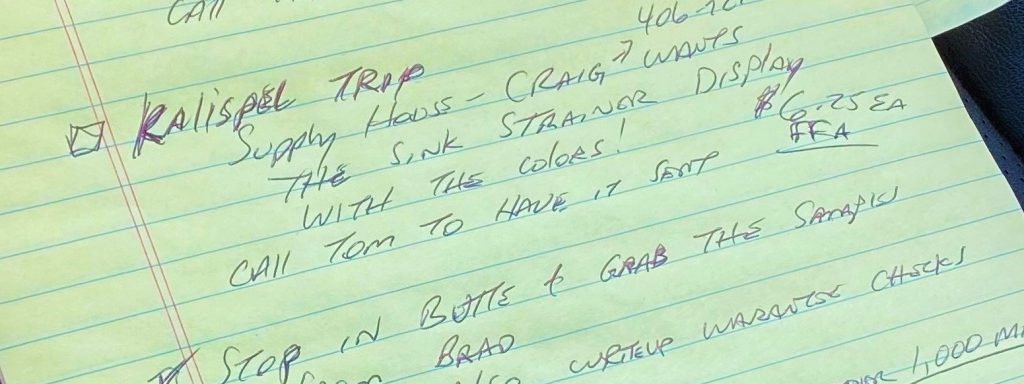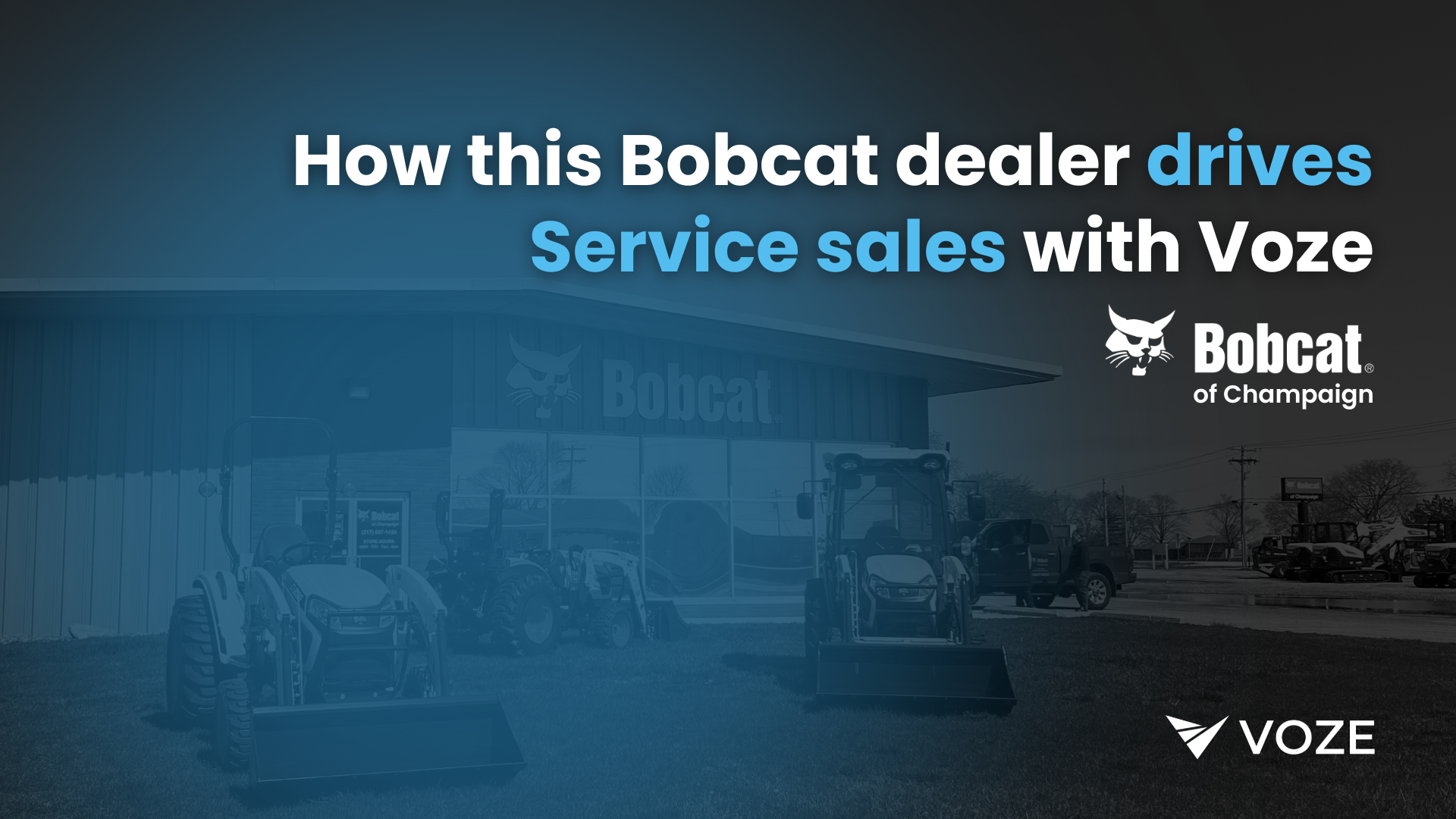6 Outside Sales Techniques To Improve Field Sales Results
Every field sales team has a number of challenges to overcome—and not all of them are external.
Sales professionals take notes in varied ways, each with varied levels of success. And every one of us has felt the bite of important notes that get lost or overlooked.

Years ago, I drove to Kalispell, Montana to make some sales calls. My first call of the day was to the Purchasing Manager of a local plumbing supply house. We had a great discussion about a new product one of my manufacturers was introducing to the market. The Purchasing Manager was thrilled at the prospect of offering it to his customers. His only request was that I send him a countertop display. “Easy enough,” I thought, and wrote myself a note on my tattered, disorganized notepad alongside a bazillion other important notes from my week-long trip to Montana.
Monday rolled around, and I was back in my home office eagerly following up on all those important notes. I mentally reviewed everything I could remember or decipher from that well-used notepad and felt fairly confident that everything was taken care of. Life was good. My fax machine was churning out the orders, and the money was rolling in.
Six weeks later, I was back in Montana and dropped by to check on that Purchasing Manager in Kalispell. I’ll never forget his dissatisfied greeting: “Go look on the counter.” I walked to the front of the store and instantly noticed a beautiful countertop display of plastic sink strainers, the exact product I had told him about just 6 weeks prior—only the display wasn’t mine. It was from my competitor.
In the mess of my notebook, I’d missed the note about ordering him the display.

Missing that note cost me money. And perhaps even more damaging, my lack of follow-through was embarrassing and placed a seed of doubt with that customer. He continued to buy from me, and our relationship stabilized for the most part, but he never bought even one sink strainer from me.
In his book The Effective Executive, Peter F. Drucker talks about putting first things first. He gives the example of a juggler. Even the most proficient in their field can only sustain all the balls in the air for about 10 minutes before they will inevitably start dropping them.
This is a perfect example of how we, as sales people, try and juggle all the information flowing through our brains. We can only juggle the details so long before something important gets dropped. And when it does, that dropped ball can disappoint customers, thwart deals, and cost us income.
The information we gather from sales calls is how we make money. Capturing that information and using it effectively is vital. This is why I started my company Telenotes.
Whether you use our services, or find another method that works for your business, the goal is to find an effective system that helps you get the most out of the data you collect from each sales call.
Here’s a quick formula that I use to help sales teams remember what information is important to capture. It’s called REAL Data!
We’ve all jotted down notes like, “Bill and I talked about our line card, F/Up next week,” hoping that later we’ll remember it really means, “I talked about Line X, Bill said they are interested but have not placed an order yet because they lack training. Bill and I scheduled training with his sales team for next Monday at 4:00. I need to remember to bring samples for 7 people and bring donuts.”
This is one of the top reasons we drop the ball. We think we’ll remember, but we don’t. Good notes should remember for us. They should capture the what, why, when, and how of everything we’ve promised to do and follow up on.
Business details, promises, and price quotes usually last longer than the yellow notepad has page life. If your Sales Rep’s current note taking system (CRM or otherwise) doesn’t allow them easy access to all their notes, past and present, find a system that will. Having everything in one place, easily accessible, will save everyone valuable time and money.
If a note doesn’t drive us to action, then why take it? We’ve all done it. We’ve scribbled out, “LM, F/Up Wed” (which translated means, Left Message, Follow Up Wednesday). Notes like this are virtually worthless.
How much better would it be to note the vital action items that will seal a deal? “I left a message with Bill regarding our promotion starting first of next month for product X. His voice message said he was out till Tuesday, so I said I would call him back Wednesday morning to follow up on the promo. I also asked that Steve in our Houston branch send him the sample so he has it prior to my call.” Actionable call notes lead to more effective use of our time.
It’s tempting to dismiss difficult sales calls altogether and simply move on. “Sally said they’re not going to buy line X from us, we are way too high for the market.”
But keeping record of a caveat might just turn that deal around: “Sally said we were too high for the market, however, after we talked, I found out that if we can waive the freight, we line up perfectly on the deal. I will call the manufacturer about freight.” Capturing those leverageable details can transform a “hard no” into a “yes.”
The real goal here is to stop juggling.
Find a system that helps you maximize all the data you gather during sales calls to continually improve your business. No more dropped balls. No more forgotten sink-strainer countertop displays. And no more disappointed Purchasing Managers in Kalispell.
Only REAL data and ease of mind.

Every field sales team has a number of challenges to overcome—and not all of them are external.

When it comes to selling heavy equipment, the sale doesn't end with the initial purchase. Providing exceptional service is crucial for building...

A CRM is a phenomenal tool that can help you exponentially grow your business—if used correctly.